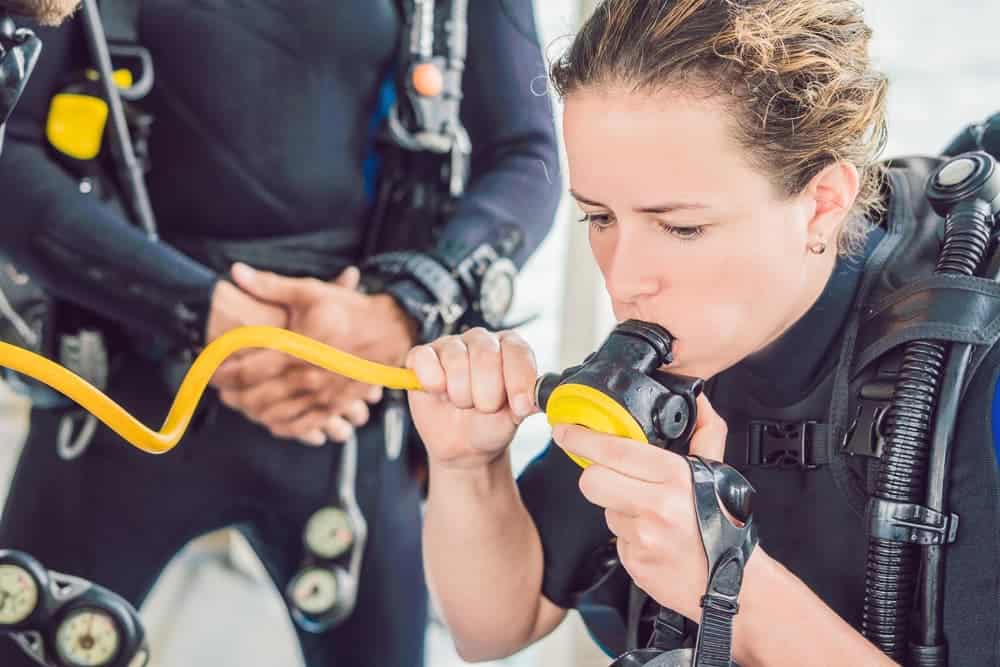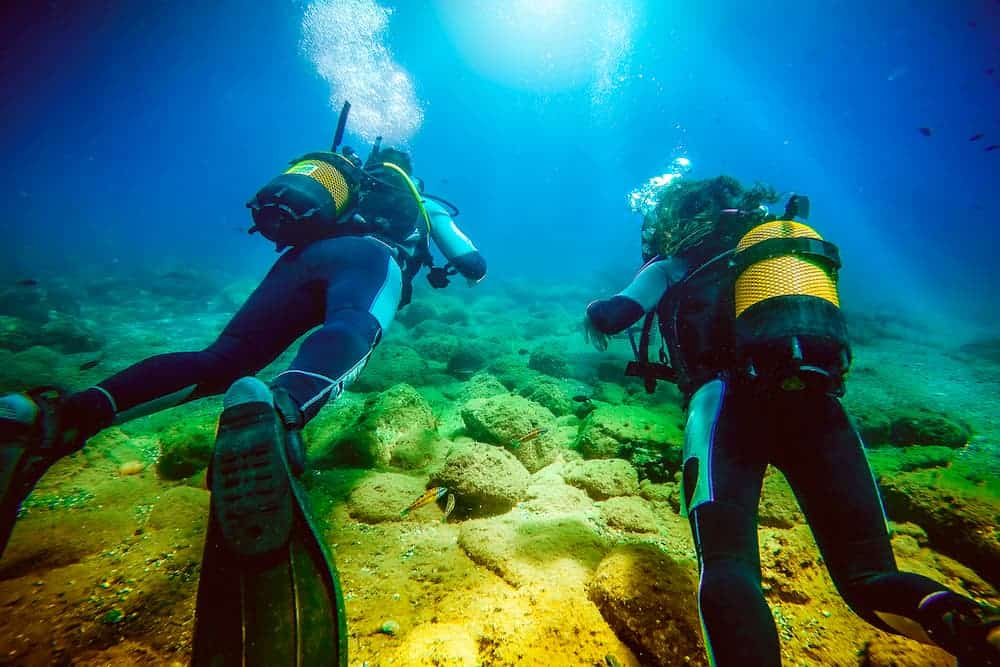Despite the potential risks involved in scuba diving, it’s one of the most popular water sports around. Perhaps, the danger is what makes people eager to learn and try it. But contrary to what others believe, this water sport is relatively secure, not to mention very fulfilling. With safe practices in tow, you can enjoy every underwater adventure while protecting yourself from diving accidents.
Safety Tips Before Scuba Diving
1. Get a dive certification
Some training organisations offer introductory courses so beginners can get a feel of the sport. However, attending this course doesn’t mean you can dive anywhere at any time. So, when planning your diving activities, make sure to secure a dive certificate from a licensed dive operator.
This habit is not only to enjoy a hassle-free trip but also to follow your travel insurance conditions. Before your diving trip, it’s a good idea to review your travel policy. For added security, make sure to carry your identification numbers as well as medical and emergency contacts. Don’t forget to inform your family about your trip details, too.
2. Make physical fitness a priority
You may think that scuba diving looks relaxing and is not strenuous at all. However, when heavy scuba gear, extreme temperature and strong current come into play, it’s a different story. So, keep yourself in tip-top shape to dive safely. Otherwise, a brief underwater experience might make you feel overstressed, panicky and distracted.
Pre-existing medical conditions can potentially put your safety underwater at risk, too, so make sure to answer medical questionnaires honestly. Consult your doctor first if necessary. Also, even if you are physically fit, diving with a cold or hangover is a no-no. It’s best to wait until you’ve fully recovered.
3. Practice your diving skillset
Like any other water sport, basic skills serve as your foundation for safe and successful dives. So, never disregard them. For example, practice CESA or your safe ascent rate to avoid the risk of decompression. Study the dive computer again, so you’ll know when you’re ascending too fast.
If you need a refresher for vital skills, such as using your buddy’s alternate air source or disconnecting your pressure inflator hose, then do so. You should know these skills by heart as they are crucial for emergency procedures. Also, practice positive buoyancy, so you can keep yourself alert and energised at the surface.

4. Dive according to your plan and limits
When planning your underwater diving adventure, make sure you know the depth and duration. Listen and follow your guide during your dive briefing, no matter your diving experience level. And whether you are going with an instructor or not, be familiar with the dive location and know your exit point.
More importantly, do not overexert yourself. A deep dive requires a different skill set than a wreck penetration. Make sure you’re not diving beyond your qualifications. Keep in mind that fun diving is safe diving. So, if you’re unsure of the conditions or situation, do not hesitate to cancel it or change your dive plan.
5. Always double check your scuba gear
It’s better to be extra meticulous when checking your diving equipment. After all, it will be your only life support and protection once underwater. So, ensure that everything is in working condition. More importantly, make sure that you know how to operate your gear.
If you’re going to a different kind of adventure, like night dives, for example, be more careful during your preparation. Once on the dive site, recheck everything with your assigned dive buddy. And do not hesitate to ask your instructor for assistance or clarification.
Safety Tips While Scuba Diving
6. Breathe regularly at all times
During your descent, your lungs contracts, and the opposite happens during ascent. Regular breathing can counter this pressure. Without it, excess air will accumulate, causing dangerous organ damage like ruptured alveoli. Doctors call this condition pulmonary barotrauma or lung injury due to over pressurisation.
In extreme cases, locked-in excess air can escape to your chest cavity and into the bloodstream. This state, also called an arterial gas embolism, can lead to death. So, be an obedient diver and follow the number one rule of scuba: never hold your breath.
7. Befriend your dive buddy
As horrible as it may sound, but the saying “you die alone when you dive alone” is true. Aside from your scuba gear, your diving partner is your life support extension. So, unless you have sufficient training, never dive on your own. If you’re meeting your buddy for the first time, introduce yourself and get to know them a bit. Ask them about their training or diving concerns, if any.
Check your scuba equipment together beforehand to steer clear of equipment failures. Review your hand signs, too, as these can sometimes vary in other diving schools. When underwater, stick together at all times. Don’t swim off by yourself even when you see something interesting. And if in case you lose sight of each other, calmly look around for a minute before slowly ascending to find them.

8. Keep an eye on your air supply
Proper air reserve allocation is a must. Make sure you have enough for your dive, return and safety. This allocation may vary depending on your diving situation, though. For instance, diving in cold temperatures or with a strong current can deplete your air supply faster than usual.
Think of your partner’s air requirement as well, so you have sufficient air during rescue procedures. In any case, the key here is to plan your air supply management and to monitor it. While your instructor or guide will check on this at periodic intervals, your air consumption is still your responsibility.
Safety Tips After Scuba Diving
9. Store your gear and discuss your dive
Once you’re back on the dive boat, make sure to take care of your scuba gear and store it properly. Think of people’s safety and place it somewhere that’s out of the way. Then spend time with your team to talk about your diving experience. Use this time to note what you’ve learned and what other skills you need to improve.
10. Inform others if you feel sick
After a dive, it is typical for others to feel a bit tired, especially if they do not exercise regularly. However, in case of unusual symptoms, like nausea or palpitations, let your guide know. Also, if you’re flying later, make sure to schedule it at least 24 hours after your last dive. You have to let excess nitrogen in your body dissipate first to avoid the risk of decompression. Monitor your health within this timeframe.
More than knowledge and skill, underwater diving requires discipline. So, respect the sport and practice these good habits to keep yourself and others safe every time. After all, scuba diving is worth doing over and over again, especially on the beautiful East Coast!
- How to Clean and Care for Your Sleeping Bag - January 6, 2022
- 6 Best Things to Do in Perth for Free - December 3, 2021
- Swag vs Tent: Which One is Better? - November 5, 2021

